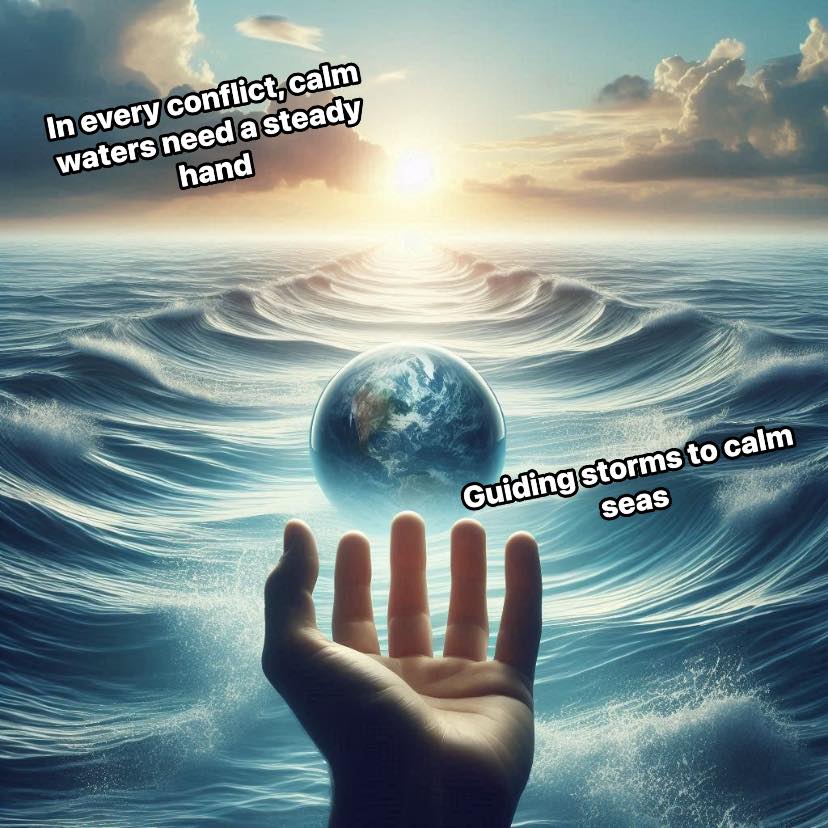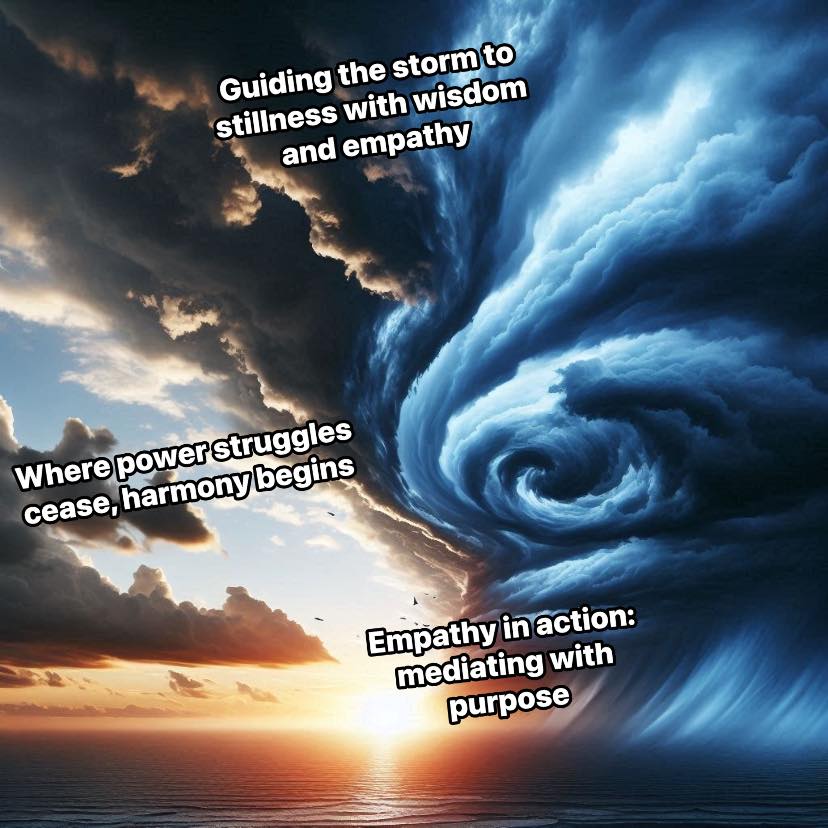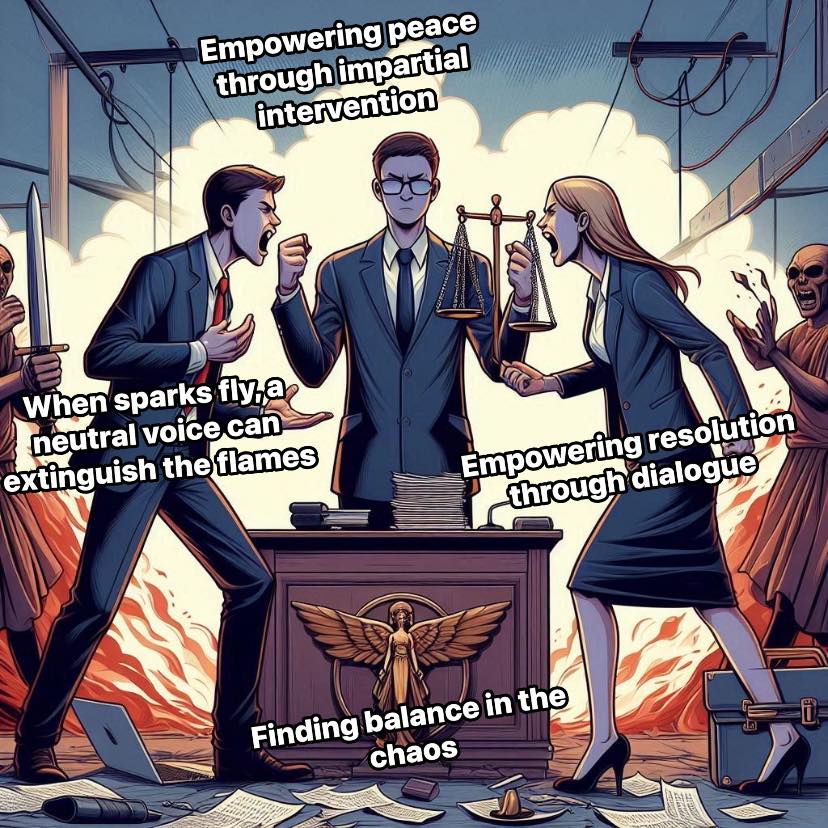
When two people are involved in a fight, both bear some responsibility. If the innocent party had stepped away, the conflict could have been avoided. It’s like a spark and fuel—without both, a fire cannot ignite. Similarly, if one side chooses not to fuel the flames, the intensity of the argument will naturally diminish. Just as a storm requires opposing winds to clash, a confrontation ceases when one party decides to stay calm and withdraw.
Yet, resolving such a conflict often requires the intervention of a third party—someone neutral, not invested in defending either side but focused on restoring peace. This mediator acts like a steady hand on a turbulent sea, calming the waves and guiding both sides toward mutual understanding. Like a fair umpire in a chaotic game, they untangle the knots of discord, offering a balanced perspective that neither side can achieve alone. By prioritizing resolution over assigning blame, the mediator helps bring harmony where conflict once reigned.

In cases where one party holds more power, the mediator must recognize that expecting justice from the stronger side can be futile—like hoping a barren tree will bear fruit. Instead, the mediator should gently guide the conversation, finding common ground and fostering empathy. They must shift the focus from a power struggle to mutual understanding, emphasizing the benefits of cooperation over conflict. By appealing to the powerful party’s sense of responsibility and exploring solutions that address the needs of both sides, the mediator can create a path toward a fair and lasting resolution.


